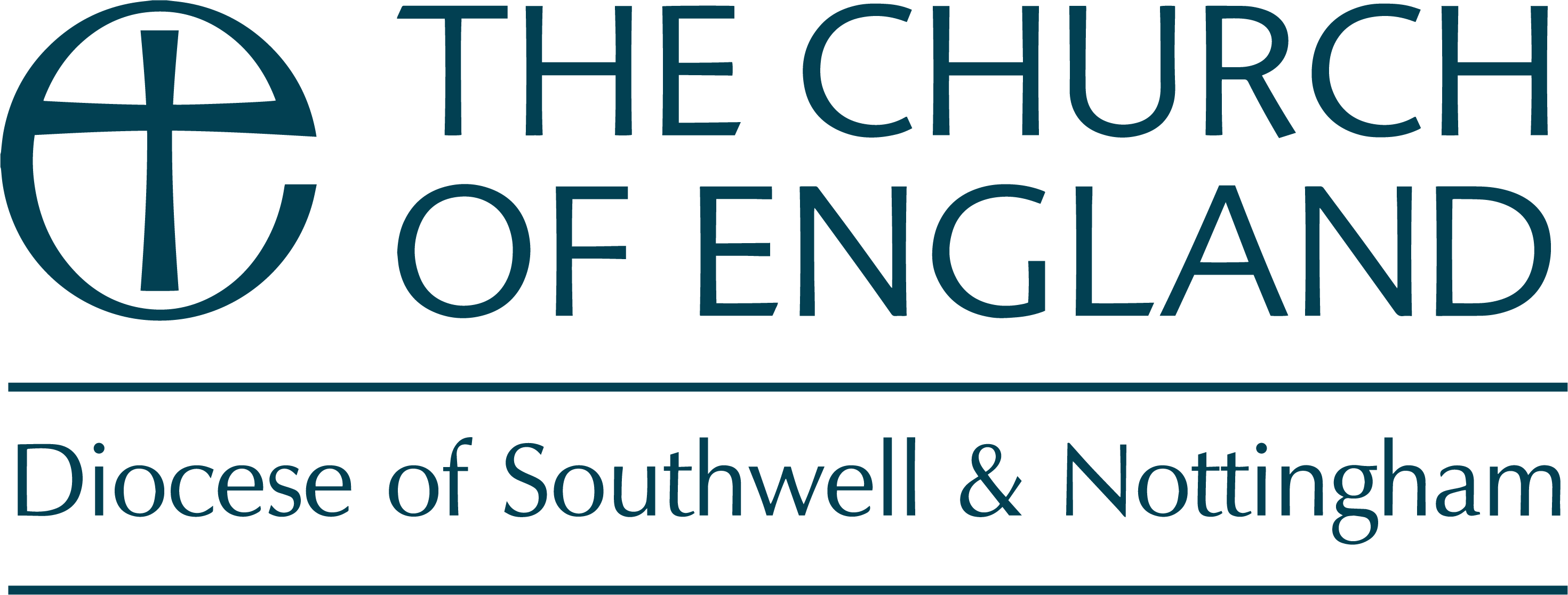PRIVACY POLICY
THE DIOCESE OF SOUTHWELL AND NOTTINGHAM
- Your personal data – what is it?
Personal data relates to a living individual who can be identified from that data. Identification can be by the information alone or in conjunction with any other information in the data controller’s possession or likely to come into such possession. The processing of personal data is governed by the UK General Data Protection Regulation (UK GDPR) and the Data Protection Act 2018 (the DPA 2018).
- Who are we?
The Diocese of Southwell and Nottingham is the data controller (contact details below). This means it decides how your personal data is processed and for what purposes.
3. How do we process your personal data?
We collect non-personal data such as IP addresses, details of pages visited and files downloaded. Website usage information is collected using cookies, see the section on Cookies below.
The Diocese of Southwell and Nottingham complies with its obligations under the “UK GDPR” and “DPA 2018” by: –
- keeping personal data up to date;
- by storing and destroying it securely;
- by not collecting or retaining excessive amounts of data;
- by protecting personal data from loss, misuse, unauthorised access and disclosure; and
- by ensuring that appropriate technical measures are in place to protect personal data.
We use your personal data for the following purposes: –
- To enable us to provide a voluntary service for the benefit of the public within the Diocese of Southwell and Nottingham;
- To administer records of: –
- Clergy;
- Lay Readers;
- Pastoral Assistants
- Pioneers
- DCC & PCC Officers
- Eucharistic Ministers (who are authorised to assist with the Chalice at Holy Communion)
- General, Diocesan & Deanery Synod members
- Cathedral, DBF and DBE Committees
- Processing for the purposes of elections under the Church Representation Rules and the Election Rules of the three Houses of the General Synod
- To fundraise and promote the interests of the Diocese;
- To manage our employees and volunteers;
- To maintain our own accounts and records (including the processing of gift aid applications);
- To inform you of news, events, activities and services running either within the Diocese of Southwell and Nottingham or further afield through: –
- Mailings (by email &/or hard copy)
- Email Communications (Weekly Update) (a subscription email service from which you can unsubscribe at any time)
4. What information do we process:
The type of information that we process includes:
- personal details
- contact information
- family details
- lifestyle and social circumstances
- financial details
- employment and education details
- pensions details
- housing needs
- visual images
- licenses or authorisation held
- training records
- case file information
- committee and trustee membership details
We also process ‘special’ categories of information that may include:
- race;
- ethnic origin;
- religion;
- trade union membership;
- health;
- sex life; or
- sexual orientation
- criminal allegations, proceedings or convictions.
We process personal information about:
- prospective, current and retired clergy
5. What is the legal basis for processing your personal data?
- Explicit consent of the data subject so that we can keep you informed about news, events, activities and services and process your gift aid donations and keep you informed about diocesan events. Where we require consent to use your information we will make it clear when we ask for consent and explain how to go about withdrawing your consent:
- Processing is necessary for carrying out obligations under employment, social security or social protection law, or a collective agreement;
- Vital interest – for example where we need to process your information to protect someone’s life in an emergency
- Processing is carried out by a not-for-profit body with a political, philosophical, religious or trade union aim provided: –
- the processing relates only to members or former members (or those who have regular contact with it in connection with those purposes); and
- there is no disclosure to a third party without consent except as set out set out in 6 below
6. Sharing your personal data
Your personal data will be treated as strictly confidential and will only be shared within the Diocese of Southwell and Nottingham, in order to carry out a service to other church members or for purposes connected with the Diocese, and certain third parties outside of the Diocese. Specially data is shared through the diocesan database and online faculty system, as set out in Annex A.
We do not transfer your personal data outside the European Economic Area (EEA) save that we occasionally use certain third party communications and marketing platforms To ensure that we do not transfer data outside the EU without safeguards being in place that are compliant with the UK GDPR, DPA 2018 or the EU GDPR
7. How long do we keep your personal data?
In general, we will endeavour to keep data only for as long as we need it. This means that we may delete it when it is no longer needed, in line with our approach to data retention. We will keep some records permanently if we are legally required to do so. We may keep some other records for an extended period of time. For example, it is current best practice to keep financial records for a minimum period of 6 years to support audits from external bodies.
8. Your rights and your personal data
Unless subject to an exemption under the “UK GDPR” and “DPA 2018”, you have the following rights with respect to your personal data: –
- The right to request a copy of your personal data which the Diocese of Southwell and Nottingham holds about you;
- The right to request that the Diocese of Southwell and Nottingham corrects any personal data if it is found to be inaccurate or out of date;
- The right to request your personal data is erased where it is no longer necessary for the Diocese of Southwell and Nottingham to retain such data;
- The right to withdraw your consent to the processing at any time
- The right to request that the data controller provide the data subject with his/her personal data and where possible, to transmit that data directly to another data controller, (known as the right to data portability).
- The right, where there is a dispute in relation to the accuracy or processing of your personal data, to request a restriction is placed on further processing;
- The right to object to the processing of personal data, (where applicable);
- The right to lodge a complaint with the Information Commissioners Office.
9. Cookies
Every time you visit our website, it sends us a cookie. This is a text file that tells us about your visit. The information is all anonymous, so we’re told about your computer, not you. And when the data comes to us it’s bulked together with information from all the other visitors to our site. Cookies tell us, for example, about traffic data, location data, device information, the date and time people visit and the pages they visit.
Most major websites use cookies. You can find out more at http://www.allaboutcookies.org/ or https://www.aboutcookies.org/.
To make the most of our website you should leave cookies turned on, otherwise you might not be able to see all of our site.
Cookies help us:
- customise what you see when you visit our site, and help us understand what would interest you
- process any requests, applications or transactions
- do our internal administration and analysis
You can turn off cookies on most browsers. To find out how, use the help function.
There are a few external companies that the diocese works with who set cookies on our website. These cookies are mainly used for reporting and advertising so we can improve the way we communicate.
We use websites like Youtube and Vimeo to embed videos, and they may send you cookies too. We don’t control the setting of these cookies, so check those websites for more information.
The diocese also uses companies like Google Analytics which use cookies.
You can opt out of Google’s tracking cookies any time you want. Google uses cookies to match adverts with your preferences so they’re more relevant to you. If you don’t want to see adverts from us based on that information, you can use Google’s Ad Personalisation Tool.
All information we get through Google’s cookies is anonymous, it just helps us understand how people use our website and app and which pages are more popular. If you don’t want Google to include you in this information, you can install the Google Analytics Opt Out Tool.
You can also visit the Digital Advertising Alliance website to personalise your advertising preferences.
As some of these services may be based outside of the UK and the European Union, they might not fall under the jurisdiction of UK courts. If you’re worried about that, you can change your cookie settings (see above). Or for more information, visit https://ico.org.uk/
10. Security
We are committed to ensuring that your personal data is secure. To prevent unauthorised access or disclosure, we have put appropriate technical and organisations measures in place to safeguard your information. The diocese of Southwell and Nottingham assure this by complying with relevant security best practice standards.
If a data breach does occur, we will do everything in our power to limit the damage and comply with the Information Commissioner’s guidance. In the case of a high-risk data breach, and depending on the circumstances, we will inform you about the remedial actions to prevent any further damage. We will also inform the Information Commissioner’s Office of qualifying data breaches.
The procedures and related standards we apply include limiting access to data on a need to know basis and regularly testing and auditing our security practices and technologies.
Employees and temporary workers are required to follow policies and procedures and complete mandatory training to understand data protection and information security.
11. Further processing
If we wish to use your personal data for a new purpose, not covered by this Data Protection Notice, then we will provide you with a new notice explaining this new use prior to commencing the processing and setting out the relevant purposes and processing conditions. Where and whenever necessary, we will seek your prior consent to the new processing
12. Contact Details
To exercise all relevant rights, queries of complaints please in the first instance contact the Data Protection Officer at the below address dpo@southwell.anglican.org Alternatively, you can contact the Information Commissioners Office on 0303 123 1113 or via email https://ico.org.uk/global/contact-us/email/ or at the Information Commissioner’s Office, Wycliffe House, Water Lane, Wilmslow, Cheshire. SK9 5AF.
Annex A
Third parties with whom data will be shared: –
- The Diocesan Database is a shared resource between: –
- The office of the Bishop of Southwell and Nottingham
- The Archdeacon of Nottingham
- The Archdeacon of Newark
- The Chancellor for the Diocese of Southwell and Nottingham
- The Diocesan Board of Finance
- Southwell and Nottingham Multi Academy Trust
- The office of the Diocesan Registrar
- The clergy and DCC / PCC officers within the Diocese
- The Church of England National Church Institutions
- The contact details of Petitioners and/or applicants on individual applications will be shared, through the Online Faculty System (OFS):
- The Archdeacon of Nottingham
- The Archdeacon of Newark
- The Chancellor for the Diocese of Southwell and Nottingham
- The Deputy Chancellor for the Diocese of Southwell and Nottingham
- The office of the Diocesan Registrar
- The DAC Committee, a current list of members can be found here.
- The DAC Advisers, a current list of advisers can be found here.
- Statutory Consultees (The Church Buildings Council, Historic England, national Amenity Societies and local authorities)
to facilitate the consideration of applications for either a Faculty or a matter not requiring a Faculty under the Faculty Jurisdiction Rules
- Clergy contact details will be provided: –
- Periodically to Crockford’s Clerical Directory
- The Church of England National Church Institutions
- When necessary, by the Diocesan Property Team to its representatives for the purpose of undertaking works of repair / maintenance of Cathedral / Diocesan clergy housing and the letting of Diocesan properties
- To the relevant local authority (in respect of Council Tax) and utility companies (in respect of supplies of energy to the property
- To the relevant Pension Providers
- In compliance with our legal responsibilities
This privacy policy has been updated December 6th 2021.


